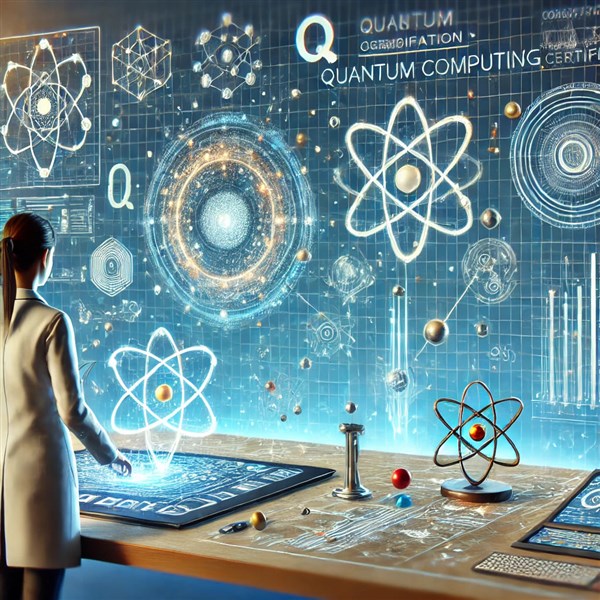Unable to find what you're searching for?
We're here to help you find it
Quantum computing is no longer a concept confined to futuristic labs or theoretical physics papers. With real-world applications emerging in fields like cryptography, drug discovery, financial modeling, and AI, quantum computing is rapidly becoming a critical frontier in technology.
For professionals, students, and tech enthusiasts looking to stay ahead, Quantum Computing Certification Programs offer a structured path to mastering this transformative field. These certifications are designed to help you build both foundational knowledge and hands-on skills, giving you the confidence to work on quantum projects or pursue further academic research.
In this blog, we’ll explore the top skills you’ll gain in a quantum computing certification program, and why they matter in today's—and tomorrow’s—digital economy.
At the heart of quantum computing is the qubit (quantum bit)—the fundamental unit of quantum information. Unlike classical bits, which are either 0 or 1, qubits can exist in a superposition of states, enabling complex computation and parallel processing.
💡 In a certification program, you’ll learn:
This conceptual foundation is crucial to understanding everything that follows in the quantum world.
Just as classical computing relies on logic gates (AND, OR, NOT), quantum computing uses quantum gates like the Hadamard (H), Pauli-X, CNOT, and T-gates. These gates manipulate qubits and form the basis of quantum algorithms.
📘 You'll gain skills in:
This hands-on experience is key to developing real quantum solutions.
Quantum computing isn’t just theoretical—it’s also about writing quantum programs. Leading certification programs include practical training in quantum programming languages and SDKs, helping you code real quantum algorithms.
🖥️ You’ll learn:
This coding ability is what turns abstract concepts into tangible computing power.
One of the most exciting aspects of quantum computing is its algorithmic breakthroughs, which offer exponential speedups over classical counterparts.
🧠 You'll study key quantum algorithms like:
These skills prepare you to apply quantum logic to real-world computational problems.
Quantum computers are inherently noisy due to decoherence and other quantum phenomena. Error correction is crucial for achieving fault-tolerant quantum computation.
You’ll learn about:
Understanding how to work within noisy environments is vital, especially given the current limitations of hardware.
Certification programs also delve into the theoretical foundations of quantum computing, helping you understand its computational power.
You’ll explore:
This theoretical insight enables you to critically evaluate what quantum computers can and can’t do—a must for researchers and developers alike.
One of the highlights of modern certification courses is access to real quantum computers via the cloud.
For example:
You’ll gain experience with:
This real-world exposure builds practical confidence and bridges the gap between theory and application.
As part of your certification, you’ll explore how quantum computing is being applied across industries.
Use cases you’ll analyze include:
Understanding these applications helps you visualize your future role in industry and research.
Many certification programs encourage participation in open-source communities like:
You’ll learn to:
These soft and strategic skills help build credibility and visibility in the quantum ecosystem.
A growing number of courses now touch on the ethical dimensions of quantum technologies. You'll explore:
This well-rounded perspective prepares you to be not just a technologist, but a responsible innovator in the quantum age.
Conclusion
Quantum computing is still in its early days, but it’s evolving rapidly—and those who get in early will be at the forefront of tomorrow’s technological revolution. A Quantum Computing Certification Program offers more than just a certificate; it offers a launchpad for your career.
Whether you’re interested in research, software development, cybersecurity, finance, or AI, the skills you gain—from quantum theory to hands-on quantum coding—will set you apart in a competitive, high-tech world.
As a leading IT training company, Koenig Solutions offers top-notch Quantum Computing Certification Programs that provide a comprehensive understanding of quantum computing. Our courses are designed to equip you with the necessary theoretical knowledge and practical skills to excel in the quantum computing field. With our experienced trainers and hands-on approach, you can confidently dive into the world of quantum computing.

Aarav Goel has top education industry knowledge with 4 years of experience. Being a passionate blogger also does blogging on the technology niche.










